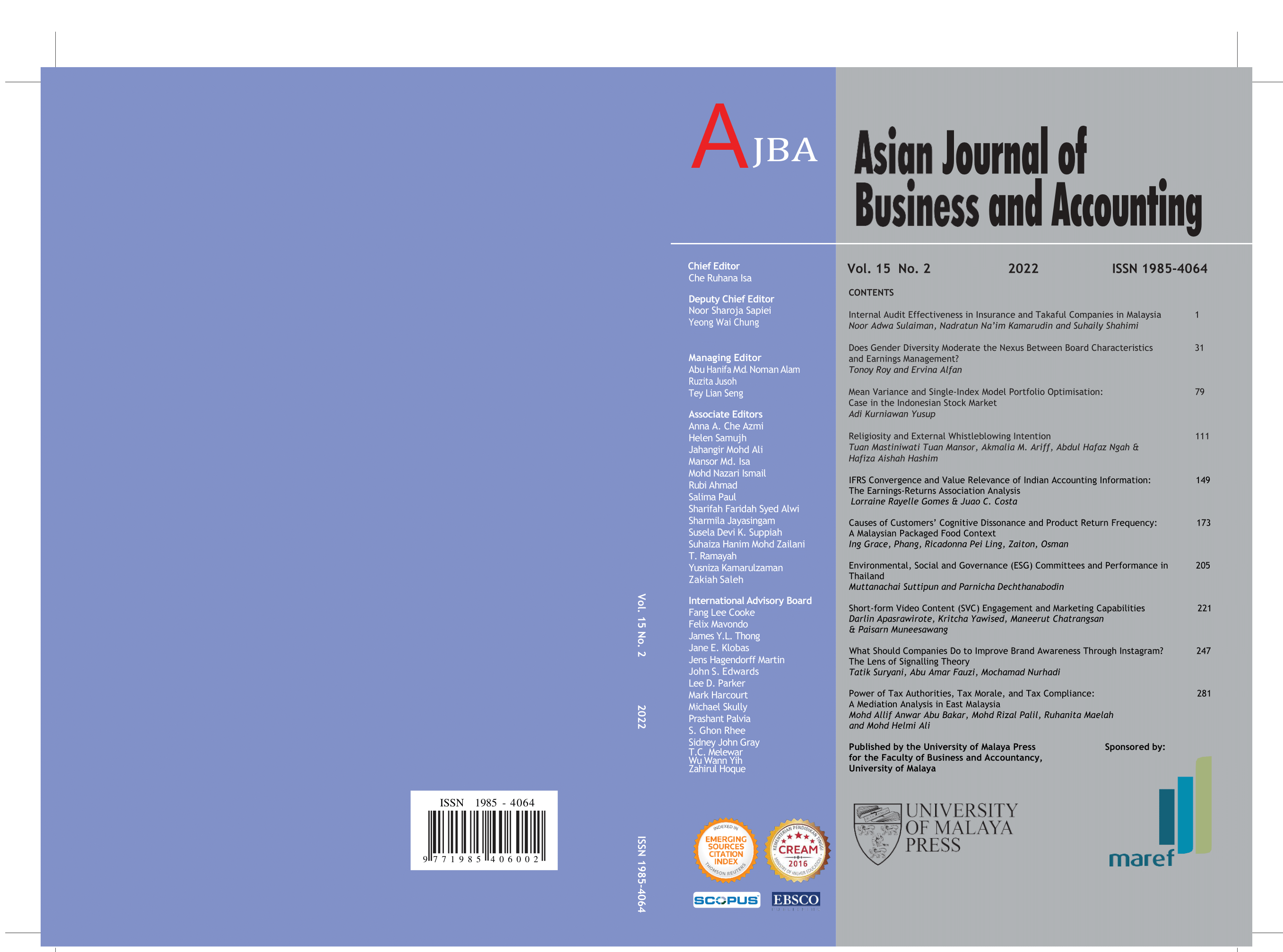Power of Tax Authorities, Tax Morale, and Tax Compliance: A Mediation Analysis in East Malaysia
Main Article Content
Abstract
Manuscript type: Research paper
Research aims: This paper aims to scrutinise the association between the
power-based model (power of tax authorities) and sociopsychological
factors (tax morale) in the theoretical framework of the tax compliance
model
Design/Methodology/Approach: A survey was completed by 116 selfemployed
and salaried individuals in East Malaysia. Partial Least Squares-
SEM (PLS-SEM) was employed to analyse the data.
Research findings: The results show no impact of the power of tax
authorities (coercive and legitimate power) on tax compliance. Only the
coercive power of tax authorities has a significantly positive effect on tax
morale. However, a significant negative relationship was found between
tax morale and tax compliance. Finally, tax morale is proven to mediate
coercive power and tax compliance.
Theoretical contribution/originality: The study adds to the body of
knowledge by including the power of tax authority and tax morale in
a tax compliance model. Theoretically, this study contributes to the
literature that moral consideration should not be overlooked in its
mediating value between the power of tax authorities and tax compliance.
Practitioner/policy implications: The present study provides novel
insight into how tax administrators, especially the Inland Revenue Board
of Malaysia (LHDN), utilise their power to influence tax morale and tax
compliance. Research limitation: The study’s limitation is that only a minority of
higher-income and self-employed respondents participated. Future
research should consider expanding the existing tax compliance model to
be tested in a different region. Besides, other sociodemographic variables
can be used as possible moderators in future studies.
